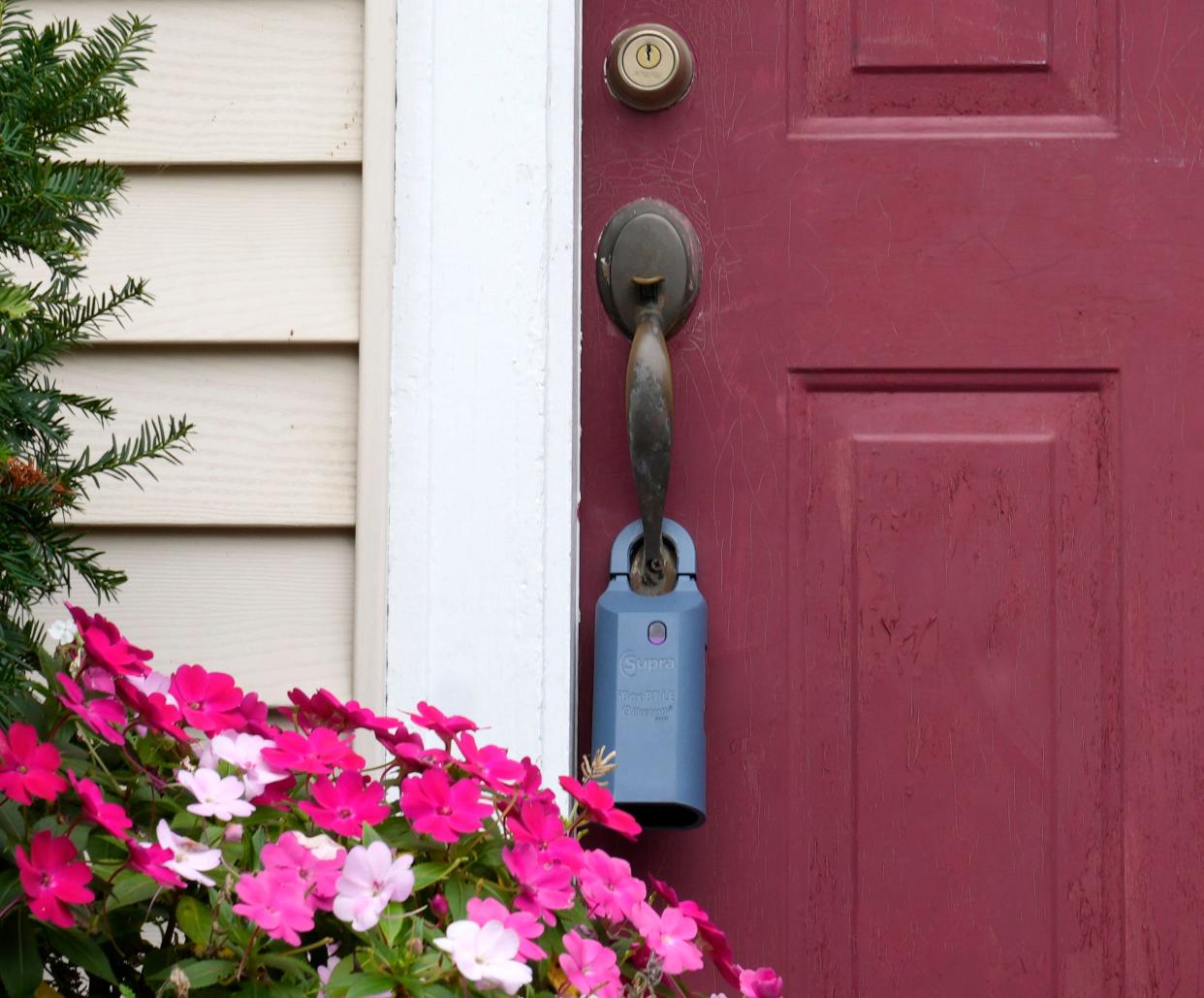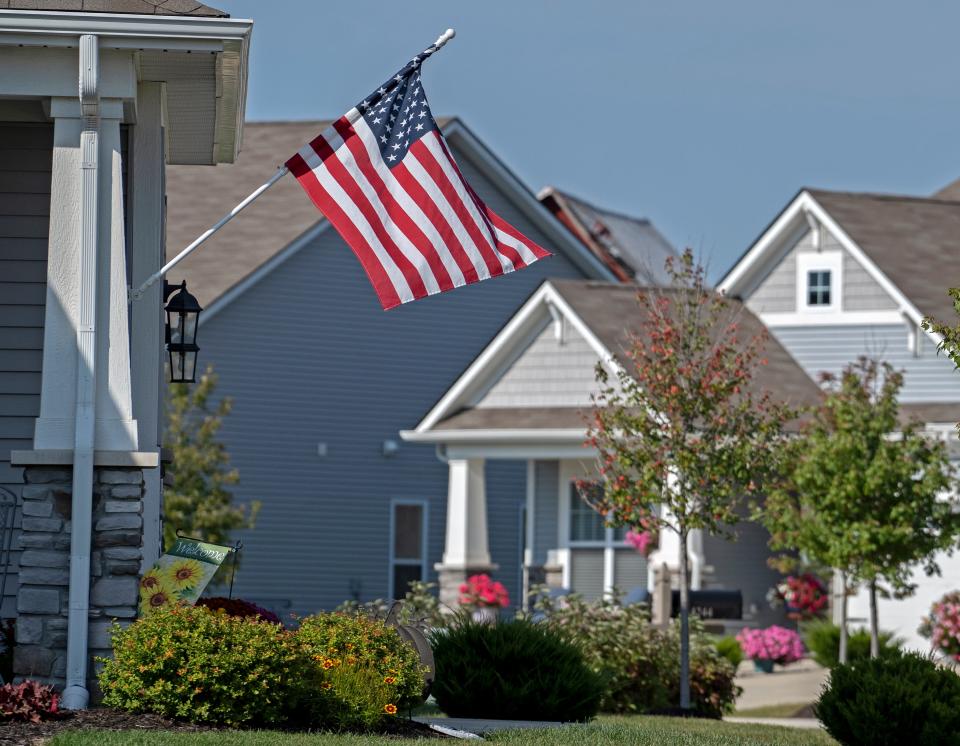Proposed credit for seniors in St. Joe County would limit property tax increases to 2%

Starting in 2024, many homeowners in St. Joseph County who are age 55 and older could apply for a credit for their property taxes that would limit their annual increase to just 2%.
Let's say they owed $2,000 previously. Then their bill went up $200. With the credit, their bill would go up only $40 instead.
The credit would last for up to three years.
The public has a chance to lend their opinion when the proposed tax credit comes to the St. Joseph County Council for a public hearing at its meeting at 6 p.m. Oct. 10 in the County-City Building. It will then come back to the council for a vote at its Nov. 14 meeting.
If passed, it could trim up to roughly $3.6 million from taxpayers’ bills per year, Steve Dalton, a consultant to the county, estimated. County government could lose up to about $375,000 per year. In the end, Dalton said, both numbers will be lower because his calculations didn’t factor in the income limits that are now part of the proposed credit.
Council member Amy Drake is seeking the credit.
“More than anything while I campaigned (last year), I heard from residents frustrated with the rise in property taxes, especially older people on limited incomes,” Drake said. “This is limited tax relief, to be sure, but it's a start.”
Her proposal takes advantage of a new state law that went into effect July 1, called the Circuit Breaker Tax Credit (Indiana Code Section 6-1.1-49). The law allows counties to adopt property tax credits, setting tax caps ranging from 2% to 5%.
"This legislature was hearing loud and clear that, because (property) values went up, people were screaming about their tax bills,” Dalton told council members this summer.
Who would qualify for the credit?
Per the new law, the tax credit is only for homeowners age 55 and older who’ve lived in their home for at least 10 years and who are receiving a homestead deduction.
Drake’s bill would restrict this to households whose adjusted gross income is a total of no more than $75,000 if single and $150,000 if married.

The state law allows the county to define boundaries for where the tax credit can be applied. But Drake’s proposal opens it to anyone who qualifies within the county.
The credit wouldn’t be automatic. Homeowners would have to file a form with the county auditor to certify their home for the credit, which would then remain in effect year after year.
Homeowners couldn’t also receive the Over 65 Circuit Breaker Credit (Indiana Code 6-1.1-20.6-8.5) at the same time.

Per the state law, the new credit couldn’t apply to any part of a home that’s used for business.
If the measure passes before the year’s end and if homeowners apply for the credit in 2024, it would affect their tax bills starting in 2025.
The state law sets a three-year limit on the tax credit. But council attorney Jamie O’Brien told the council that they could decide to end it earlier, too.
What would the impact be?
So far, none of the council members have spoken against the proposal.
In a council committees meeting on Sept. 26, council member Bryan Tanner, who’s been supportive, reiterated his question about how the word would get out so that everyone who’d qualify for the credit — especially those who need it the most — don't miss out, beyond just the news media.
He also questioned whether any of the 46 taxing units affected would lose so much that it might cost the equivalent of a full-time position.
“I’m not speaking against this,” Tanner said. “I’m just saying that’s a consideration that’s going through my head.”
In round numbers, here are just some of the estimated losses that Dalton calculated, which he said are high because he didn’t factor in the credit’s income limits. The losses also depend on how many homeowners actually sign up for the credit. The other units include many townships, towns, school districts, libraries, the airport, TRANSPO and tax increment finance districts.
∎ City of South Bend: $1.3 million
∎ City of Mishawaka: $267,000
∎ South Bend Community School Corp.: $388,000
∎ Penn-Harris-Madison School Corp.: $76,000
∎ St. Joe County Public Library: $118,000
∎ Mishawaka-Penn-Harris Public Library: $19,000.
Find estimates for all taxing units in a document embedded in this story online.
The credit, Dalton pointed out, won’t affect the extra revenue that school districts receive through referendums. That includes the $220 million bond referendum that is now supporting South Bend schools.
County Auditor John Murphy said much of the losses at the county level would be offset by higher interest earnings on investments that the county has also been receiving.
The county’s local income tax revenue has also been good, Murphy said, because more people have been working.
In an $85 million annual budget, he said, the potential loss is “a relatively small amount.”
Still, he said, he can’t be precise because it’s hard to predict what will happen with different revenue streams.
The auditor’s office, Murphy said, is planning on at least one more employee in 2024 to handle the forms that homeowners would need to file in order to qualify for the credit.
He doesn’t expect any major cuts.
However, Murphy noted, the tax credit won’t affect the budget until 2025.
"Yes, we will take in less, but don't forget that the county, as well as South Bend and Mishawaka, just received millions and millions in COVID funding," Drake said. "The county spent its money all over the county, including to towns and townships — big amounts of money that allowed us to do major road projects, water and sewer initiatives, improve public safety and grow parks."
She also noted tax abatements that the council approved for businesses this year and added, "We do not want to forget the taxpayers in all of this."
South Bend Tribune reporter Joseph Dits can be reached at 574-235-6158 or jdits@sbtinfo.com.
This article originally appeared on South Bend Tribune: Property tax credit proposed for senior homeowners in St. Joseph County

